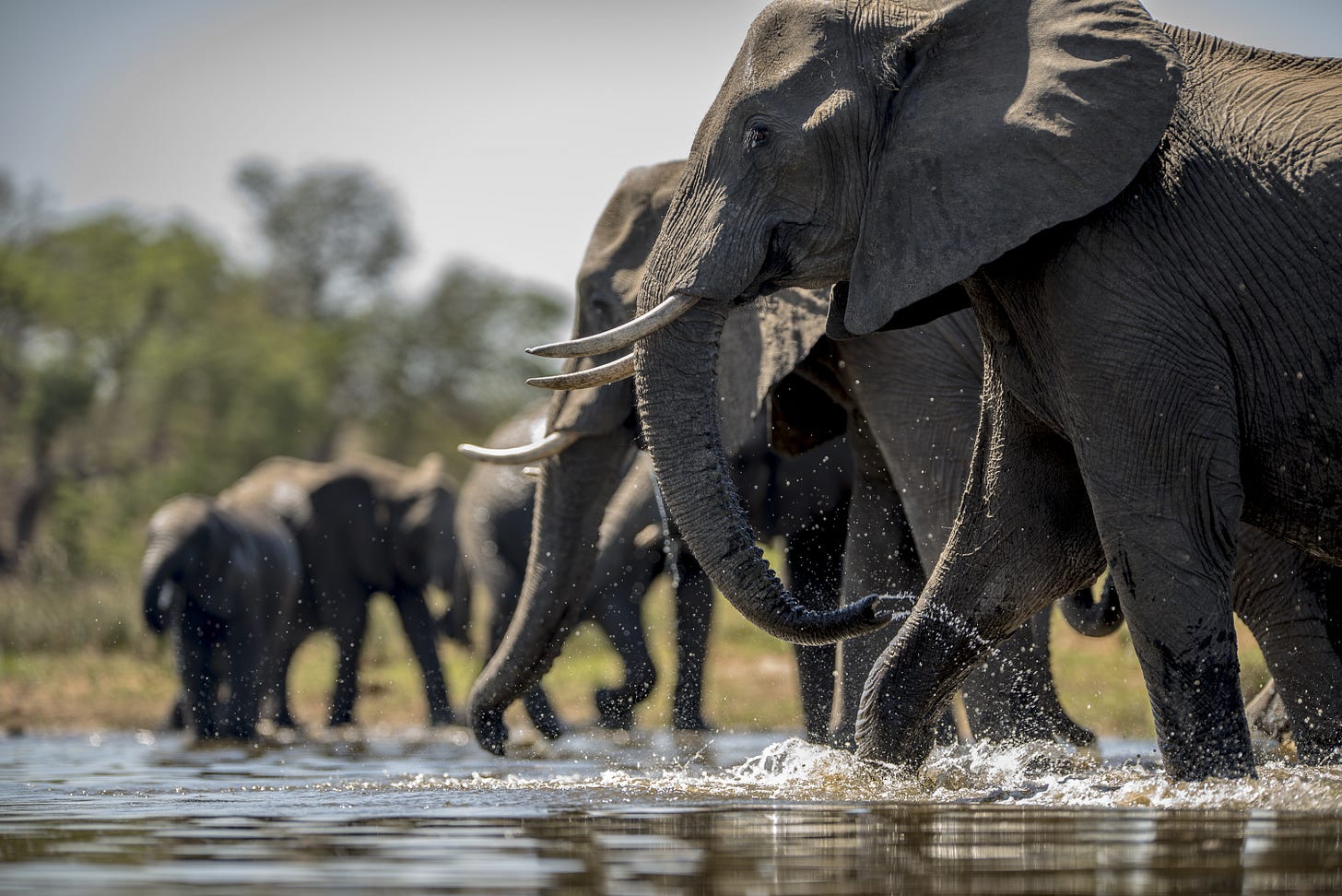No one wants you to be a great writer
Aspiring op-ed authors sometimes assume elevated writing will get their submission accepted. But impressive writing is not what editors are looking for.
Thanks for reading Pitches Get Stitches. I’m Jake. My company, Opinioned, helps leaders publish op-eds in top-tier media. I previously built and edited the opinion section at Fortune.
In this newsletter, I evaluate reader-submitted op-ed pitches from the perspective of an op-ed editor. I try to not only point out flaws, but highlight common themes I’ve noticed over my career fielding pitches and helping clients construct their own.
I would love if you submitted a pitch for me to review. It can be something you’re actively working on or hypothetical. And it can be a short email pitch or a full draft.
If you have a pitch, reply to this email or send it to jake@getopinioned.com. If I select it, I’ll omit any identifying information and evaluate it in this newsletter at no cost.
Leave the great writing to the writers
This thought came to me while evaluating this week’s pitch. It’s not the only thing they needed to work on in the article. But it’s one I’ve wanted to highlight for a while now, because I see it a lot.
Op-ed editors don’t expect you, the byline author, to be an amazing writer. They know this isn’t your profession. Instead, they’re looking for you to supply the deep insights and knowledge that come from knowing your particular issue exceptionally well.
When I was an editor, and reviewed a pitch that had impressive writing by someone who wasn’t a professional writer, I sometimes became suspicious. I assumed that this person must have worked with a ghostwriter or writing assistant. That detracted from the purity of their message, and made me feel less inclined to run the piece.
There are other hazards. One, it doesn’t look great when you try and fail to execute fancy writing. That’s what happens with the byline author’s attempt at sarcasm near the end of the submission. Two, it can draw your energy away from the substance of your argument, which is the most important thing. If you’re trying hard to impress an editor with your writing ability, you’re not spending enough energy on making your argument airtight and supporting it as best you can.
Editors are good at gussying up your prose. That’s their job! Let them handle it.
Pitch
Bills in U.K. and U.S. aim to eliminate trophy imports must pass
By [an environmentalist and nature documentarian]
A new bill introduced to congress this week by Rep. Sheila Jackson Lee (D-TX) (H.R. 7795) aims to prohibit the importation of animal trophies into the U.S. In the U.K., a similar measure was brought to the floor of Parliament last week (the third attempt).
Here in the U.S., H.R. 7795 must pass! Not just because it’s wrong to kill animals needlessly for trinkets, but because with every elephant, rhino and lion (and bear and wolf) we kill for sport, the closer we come to threatening our own species.
The killing of endangered and threatened species threatens our very existence and cycle of human life as we know it. This is not the simple ramblings of an environmentalist fanatic. It sounds a bit apocalyptic, but the science is there.
A recent study in the Journal PLOS Biology found that large mammal poaching has far-reaching implications for climate change, and the result of continued illicit hunting will be dire. Specifically, researchers note that when large wildlife are killed (specifically elephants and rhinos), the carbon stored in their bodies returns to circulation. This means that the over 11,000 elephants killed in a national park in Gabon from 2004 to 2012 resulted in the loss of almost 8,000 tons of sequestered carbon.
With every elephant (or lion or rhino…) slaughtered for illicit trade, we come that much closer to endangering ourselves. The elephant in the room is literally an elephant!
Not long ago, tens of thousands of the greatest land mammal on earth were being destroyed – elephants were shot, and their faces hacked off for mere baubles to satisfy lust for ivory among the rising middle class in China. In 2011, Vanity Fair ran an article by Alex Shoumatoff on the renewed slaughter of the African elephant. The article was hand-delivered to Chinese officials and turbo charged the world to save the elephant from extinction. It was perhaps the most ambitious of its kind ever.
Yet under former President Donald Trump, over 700,000 body parts of trophy animals were allowed into the U.S.
There are 12 co-sponsors of H.R. 7795 – all Democrats, including the venerable Nancy Pelosi. Why no Republicans? Because Republicans – clearly with their hands in the pockets of the NRA – are beholden to veraciously protect the precious Second Amendment, which was clearly added to our constitution so that we can all have ivory keychains and zebra heads mounted to our walls.
In the UK, over 90% of the public wants to see a ban on trophies. Luminaries such as Ed Sheeran, Ricky Gervais, Dame Judy Dench, and explorer extraordinaire Randolph Fiennes are all in support of the ban. It might behoove celebrities in Hollywood to join voices with their comrades in the UK. Australia, France, Belgium and other countries have already banned the trophy trade.
These companion Bills on both sides of the Atlantic are nothing less than Declarations for Life, and a demand to uphold “the law of Nature and Nature’s God,” as recognized by America’s founders in the Declaration of Independence.
2024 is a HUGE election year. Maybe it’s time to ask our elected leaders – “Do you have any animal trophies in your home or office?” And if yes, let’s vote them out! Meanwhile, call your local U.S. Representative and tell them, we want the world’s animals protected. Pass H.R. 7795. Our lives depend on it.
Stitches
Bills in U.K. and U.S. aim to eliminate trophy imports must pass
🏆 Don’t leave a bad first impression with an easy grammatical mistake. The bills are “aiming” to eliminate imports.
Will this sink your pitch? No. But it won’t help either.
🏆 This headline should make clear that you’re talking about “animal trophies,” not just any trophies. That might seem obvious to you, the author. But it wasn’t to me, the reader.
You have to signal to the editor up-front what this article is going to be about. They might need to route it to the appropriate editor on their team. They might not send it to the right person if they don’t know this piece is about animals and the environment.
🏆 Writing that something “must” happen, especially referring to legislation, is extremely common in op-ed pitches. Don’t do what everyone else is doing.
You should know that a piece about why a certain piece of legislation should or shouldn’t pass is the most common form of op-ed. That doesn’t mean you can’t write about legislation. But it does mean you should go in clear-eyed about your chances for success, especially if the legislation concerns a more niche subject like this one.
A new bill introduced to congress this week by Rep. Sheila Jackson Lee (D-TX) (H.R. 7795) aims to prohibit the importation of animal trophies into the U.S. In the U.K., a similar measure was brought to the floor of Parliament last week (the third attempt).
Here in the U.S., H.R. 7795 must pass! Not just because it’s wrong to kill animals needlessly for trinkets, but because with every elephant, rhino and lion (and bear and wolf) we kill for sport, the closer we come to threatening our own species.
The killing of endangered and threatened species threatens our very existence and cycle of human life as we know it. This is not the simple ramblings of an environmentalist fanatic. It sounds a bit apocalyptic, but the science is there.
🏆 I always recommend starting with an active lead. Grab my attention! Most op-ed writers begin with background or setup—and most writers have their op-eds rejected.
🏆 Don’t use an exclamation point to attempt to emphasize your thesis. The strength of your argument comes from everything that follows. Screaming isn’t going to convince anyone that you’re correct. Are you convinced by the ramblings of someone shouting at you on the street?
🏆 Why are you only saying this legislation must pass in the U.S.? You brought up the U.K in your introduction. I assume you want it to pass there as well?
🏆 Stating that the killing of animals for sport threatens our own existence is intriguing. I definitely want to read more about that, because I’ve never heard that argument before.
A recent study in the Journal PLOS Biology found that large mammal poaching has far-reaching implications for climate change, and the result of continued illicit hunting will be dire. Specifically, researchers note that when large wildlife are killed (specifically elephants and rhinos), the carbon stored in their bodies returns to circulation. This means that the over 11,000 elephants killed in a national park in Gabon from 2004 to 2012 resulted in the loss of almost 8,000 tons of sequestered carbon.
With every elephant (or lion or rhino…) slaughtered for illicit trade, we come that much closer to endangering ourselves. The elephant in the room is literally an elephant!
🏆 I understand the connection the author is attempting to make: If we continue to allow animal trophy imports into the U.S., it could encourage continued large mammal poaching.
They do a good job summarizing the study in PLOS Biology that explains why poaching is such a problem for climate change. But they don’t do as good of a job proving that some connection exists between trophy imports into the U.S. and U.K. and the continued practice of large mammal poaching.
How am I supposed to know whether poachers are influenced by the availability of trophy imports in these countries? No evidence is presented to that end. And I wonder: If a ban were enacted, couldn’t poachers just divert their sales to countries without bans? Maybe they’re already mostly exporting to countries that don’t have bans. In that case, would the bans even matter that much?
There may be good answers to the questions I posed. But if so, you need to preempt my questions with answers in the draft.
🏆 For me, the “elephant in the room” line doesn’t work. It might have been a funny inclusion if it made sense in the situation being described. But the proverbial elephant in the room is when something isn’t being discussed even though everyone knows it should be. Most people aren’t aware of this issue, so describing it like that is a stretch.
Not long ago, tens of thousands of the greatest land mammal on earth were being destroyed – elephants were shot, and their faces hacked off for mere baubles to satisfy lust for ivory among the rising middle class in China. In 2011, Vanity Fair ran an article by Alex Shoumatoff on the renewed slaughter of the African elephant. The article was hand-delivered to Chinese officials and turbo charged the world to save the elephant from extinction. It was perhaps the most ambitious of its kind ever.
Yet under former President Donald Trump, over 700,000 body parts of trophy animals were allowed into the U.S.
🏆 I wouldn’t include a line like “It was perhaps the most ambitious of its kind ever.” It’s too hyperbolic, without anything backing it up.
🏆 Taking random political potshots usually isn’t a good idea. You mention that 700,000 body parts were imported under Trump. But I immediately wonder: What about under Obama? If there was no trophy ban in place then, wouldn’t Obama have also allowed imports? And all presidents before that?
Maybe it’s the case that Trump specifically set out to enable these imports. I have no idea. My point is that this isn’t explained. As an editor, I might assume then that you’re just taking the opportunity to lambast Trump, which isn’t part of your overall argument.
There are 12 co-sponsors of H.R. 7795 – all Democrats, including the venerable Nancy Pelosi. Why no Republicans? Because Republicans – clearly with their hands in the pockets of the NRA – are beholden to veraciously protect the precious Second Amendment, which was clearly added to our constitution so that we can all have ivory keychains and zebra heads mounted to our walls.
🏆 This paragraph continues in the same vein as above, lauding Democrats and criticizing Republicans. This isn’t to say that you can’t criticize a political party or figure in an op-ed. But if you’re going to do so, it should come as part of a central theme of your piece. You can’t just start lobbing random fireballs halfway through the piece without having established any justification for lobbing them.
🏆 The analysis of why Republicans don’t support the ban looks surface-level. I assume there must be more complex motivations at play beyond the party simply being in thrall of the NRA. That’s a common charge leveled against Republicans, and doesn’t feel like expert analysis.
🏆 As mentioned in the essay at the top of the newsletter, I don’t think your attempt at sarcasm at the end of the paragraph works. I’d just focus on your argument, not being witty.
In the UK, over 90% of the public wants to see a ban on trophies. Luminaries such as Ed Sheeran, Ricky Gervais, Dame Judy Dench, and explorer extraordinaire Randolph Fiennes are all in support of the ban. It might behoove celebrities in Hollywood to join voices with their comrades in the UK. Australia, France, Belgium and other countries have already banned the trophy trade.
🏆 You’ll need to link to that 90% statistic. It seems quite high, so in order to avoid suspicion, make sure to include evidence. This also saves the editor time.
🏆 I like your mention of trophy imports being banned in other countries. If more have done it, I’d want you to include them. Some overall numbers, or percentages of countries worldwide, would help. You want to give us a picture of how most countries are treating the issue, so you can establish the U.S. and U.K. as outliers.
🏆 Speaking of the U.K., your description of the public’s views on trophies confused me. You’ve already told us why you believe the U.S. hasn’t banned trophies. But the factors that influence politicians in the U.S. are different than those in the U.K., namely that the U.K. has no equivalent of a gun lobby. Not only that, but you claim 90% of the U.K. public wants a ban. I’m keen to know, then, why a ban hasn’t been enacted there. Don’t leave me wondering!
These companion Bills on both sides of the Atlantic are nothing less than Declarations for Life, and a demand to uphold “the law of Nature and Nature’s God,” as recognized by America’s founders in the Declaration of Independence.
🏆 This is too grand of a statement. I’m not exactly sure how poaching violates “the law of nature and Nature’s God.” If it truly does, you need to explain that further.
2024 is a HUGE election year. Maybe it’s time to ask our elected leaders – “Do you have any animal trophies in your home or office?” And if yes, let’s vote them out! Meanwhile, call your local U.S. Representative and tell them, we want the world’s animals protected. Pass H.R. 7795. Our lives depend on it.
🏆 I assume this question is rhetorical. Is it? It sounds a bit ridiculous otherwise.
🏆 But taking it a step further, why someone would ask a politician that question? What really matters, as far as I’m reading this piece, is that politicians support the proposed ban. The thing you’d really want to know, then, is their position on the ban, not whether they have animal trophies at home.
I’m sure those two answers would largely correlate. But still, why ask that question when another one gets your point across more effectively?








